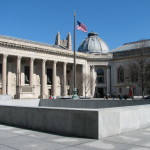
Dear Professors,
Stop assuming that I know things.
In fact, assume that I don’t know anything at all. Assume that I only have two old brain cells left and they’re only enough to remember my name and birthday. When you feel yourself starting to say, “You should’ve learned this in high school…” remember that me and my brand new brain cells are in the room.
I know you don’t say it to be malicious. It’s Yale, so it’s only natural to assume that your students are familiar with Moby Dick or Oedipus. It’s Yale, so it’s only natural to assume that your students received a high school education that included Physics, Calculus, and English Literature. It’s Yale, so it’s only natural to forget that some students are playing catch up in your classroom.
I never took physics in high school. I was still reading To Kill a Mockingbird when my peers were reading Pride & Prejudice. My school was, for reasons outside of its control—mostly poverty and language barriers—underperforming compared to the rest of the nation. So when you look out and ask, “Who here has read The Odyssey? Knows the equation for force? Has seen this before?” and everyone around me raises their hands, it is only another reminder of how behind I am. Of how different I am from my peers who went to private schools that cost more than my family makes in a year.
Of course—you don’t mean to reinforce class differences. You would never look out into the classroom and ask, “Who went to private school? Who here had a college fund? Whose family owns their home?” You would never do that because you understand those forms of capital. Yet issues of access span far beyond material experiences. Knowledge is also a form of capital, and functionally the most important form of on college campuses around the country.
Knowledge capital is not a new term. Mostly used within companies, the term is used to talk about the intangible asset that represents the valuable ideas and intuitive processes that belong to a company and its members. Yale has a long history of being a place where knowledge is concentrated. As an institution, the university works hard to acquire the most intellectual capital possible. It reaches all around the globe to attract the smartest, most unique, and highest-achieving students. It hires the best researchers in their respective fields. It knows, clearly, the value of knowledge.
We do too. The students who have less conventional knowledge, who didn’t read the classics, who don’t understand the stock market, who aren’t caught up on political affairs, we understand that we lack something inherited by our peers. We know that generational wealth does not only mean material assets, but also means the intangible: access to resources, to academia, and to an awareness of university culture that is brand new to us and our families. However, we also know that we hold knowledge capital of a different kind.
Our experiences allow us to relate to and understand material in a way that many of our peers cannot. Low-income students understand economics and its material effects on the population because we’ve seen it ourselves. We can tangibly point to instances in which environmental destruction has disadvantaged our communities. We hold knowledge capital that is valuable, and yet, it seems sometimes that Yale doesn’t value it.
Do you?
~Alex Rocha-Alvarez ’22

